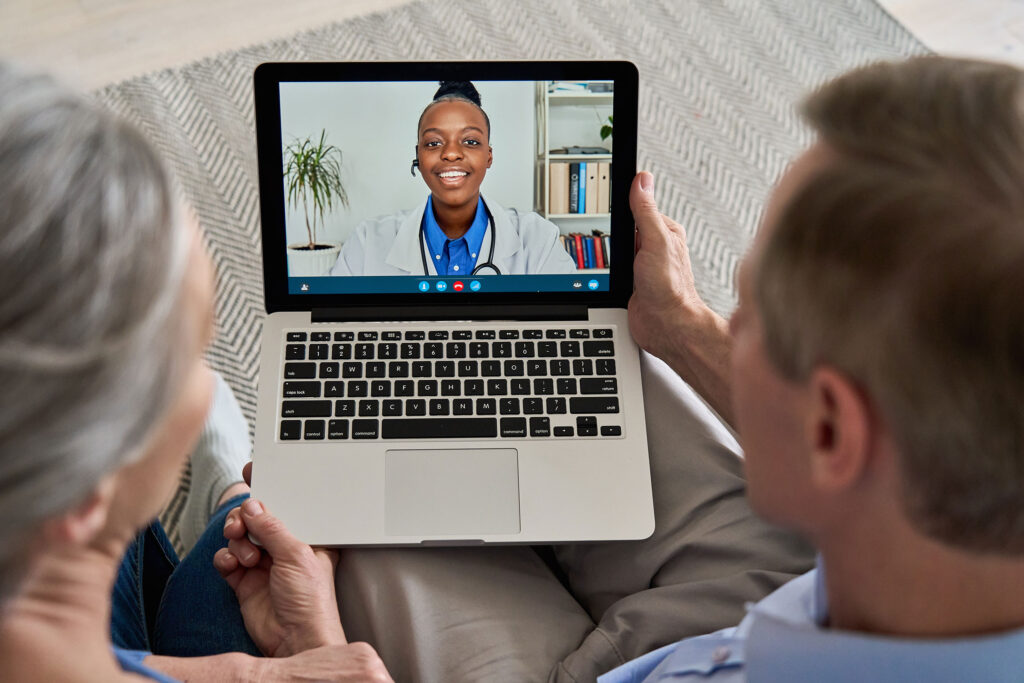Finding and working with doctors who treat hypersomnias
such as idiopathic hypersomnia, narcolepsy types 1 and 2, and Kleine-Levin syndrome

such as idiopathic hypersomnia, narcolepsy types 1 and 2, and Kleine-Levin syndrome
Because idiopathic hypersomnia (IH) and related sleep disorders aren’t as common as other health conditions, many doctors don’t have much experience with them. That’s why finding a sleep medicine doctor who knows about diagnosing and treating hypersomnias is important for people who live with these conditions.

Jump to page sections
 There are several ways to find one. You may need to travel to meet with them, but it’s often worth it.
There are several ways to find one. You may need to travel to meet with them, but it’s often worth it.
Our directory includes sleep doctors and other healthcare professionals, such as behavioral sleep medicine specialists, psychologists, physician assistants (PAs), nurse practitioners (NPs), and primary care doctors. These professionals reported experience with hypersomnias and joined on their own, or people in the hypersomnia community recommended them.
Keep in mind that all medical doctors and some NPs and PAs can prescribe medicines, but psychologists and counselors usually can’t. Search now.
If you can’t find a doctor near you in our directory, you can search online for sleep medicine doctors at academic research centers. These centers are usually at medical schools or sleep medicine training programs. Search for:
ESSDS (Express Scripts Specialty Distribution Services) is the only pharmacy in the U.S. that has the oxybate medicines Xyrem and Xywav, which specifically treat narcolepsy and idiopathic hypersomnia. Doctors must enroll in a special program to prescribe these medicines, and they usually know more about hypersomnias.
Here’s how to contact ESSDS:
You can ask members of a hypersomnia support group if they have any doctor recommendations. Find a list of online hypersomnia support groups here.
You can search More Than Tired’s “Find a Sleep Specialist” tool. This has about 4,000 U.S. doctors who treat narcolepsy based on insurance claims data from Jazz Pharmaceuticals. You can search by your zip code.
Note: These resources don’t consider doctors’ interest or expertise in hypersomnias.
You can search your health insurance company’s directory or online directories such as MediFind or HealthGrades by specialty. Try searching for doctors who are certified in both “sleep medicine” and “neurology”.
You may also find these tools helpful:
 Sleep medicine doctors (also called sleep medicine specialists or sleep doctors) do extra training in sleep medicine, and focus on diagnosing and treating sleep disorders. In the U.S., sleep doctors first train in one of these other specialties:
Sleep medicine doctors (also called sleep medicine specialists or sleep doctors) do extra training in sleep medicine, and focus on diagnosing and treating sleep disorders. In the U.S., sleep doctors first train in one of these other specialties:
Doctors who are also:
If you can’t find a doctor who has experience with hypersomnias, you may have to help a doctor without experience understand your condition. You can share:
For people with uncommon disorders like IH, it’s especially important to self-advocate and be an active partner with your doctors.



 A telehealth appointment is when you talk to your doctor over the phone, on a video call, or through a patient portal app. If your doctor does telehealth, this can be a great option if you struggle getting to or staying awake for appointments.
A telehealth appointment is when you talk to your doctor over the phone, on a video call, or through a patient portal app. If your doctor does telehealth, this can be a great option if you struggle getting to or staying awake for appointments.
Telehealth appointments may have their own challenges, but here are some tips to help.
About a week before your telehealth appointment:
The day of your telehealth appointment:
 Making important decisions, like choosing a sleep doctor, can feel overwhelming, especially when you’re also dealing with your sleep disorder itself. Talking about your options with your personal team can help make decisions easier and less stressful.
Making important decisions, like choosing a sleep doctor, can feel overwhelming, especially when you’re also dealing with your sleep disorder itself. Talking about your options with your personal team can help make decisions easier and less stressful.
Your team members may include:
Your team can help you make important decisions, such as:
Asking for a second opinion from another sleep doctor can help you make decisions. They can help you confirm your diagnosis and get more information about your treatment options. To read more about second opinions, see:
Published May. 1, 2020 |
Revised Jan. 30, 2024
Complete update Jan. 22, 2024